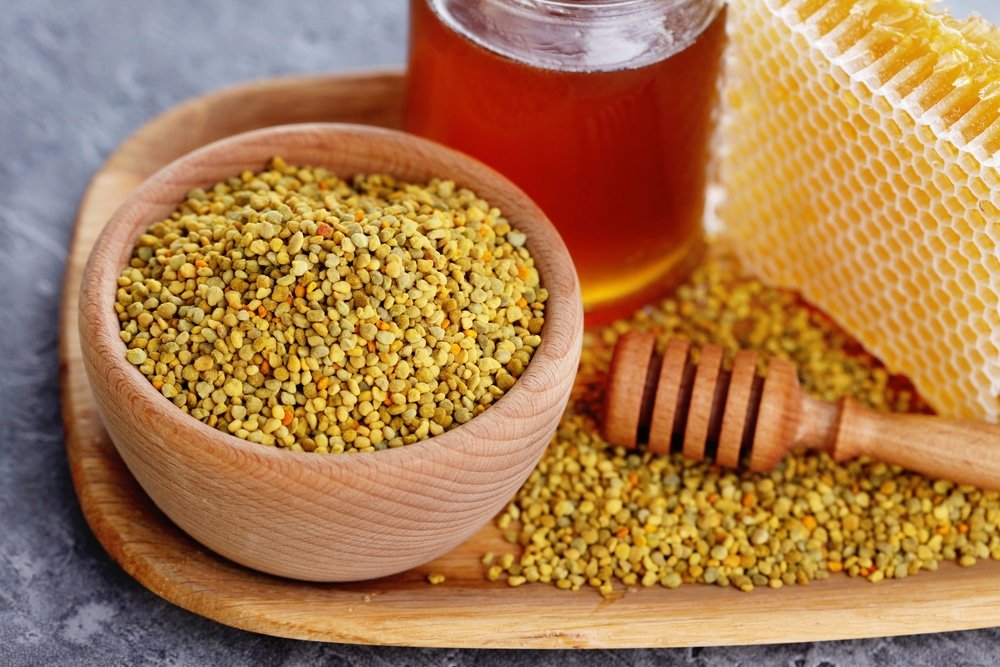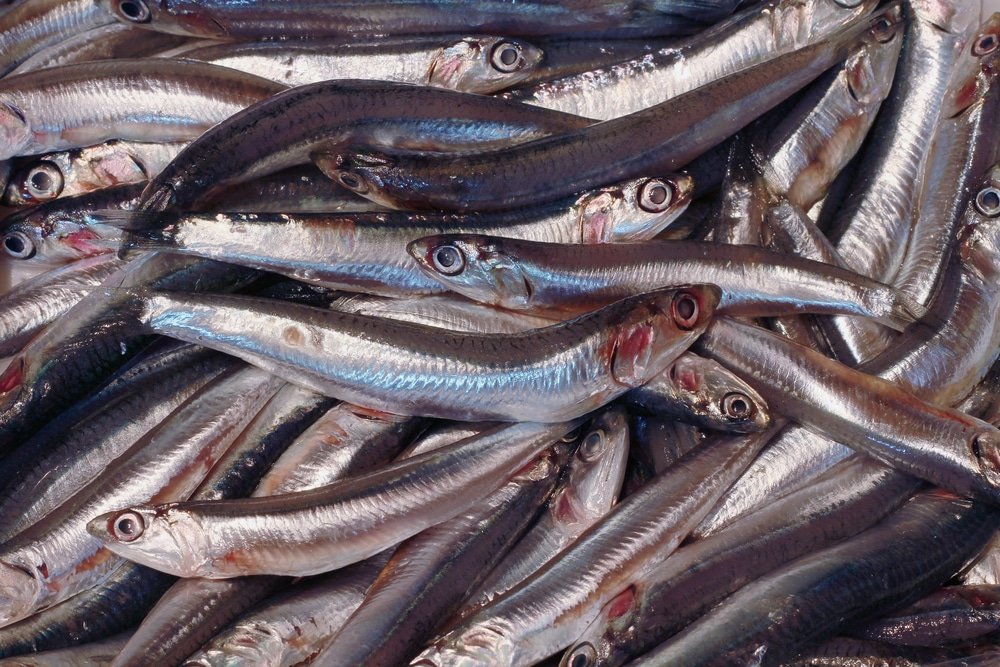Bee Pollen is nature’s way of creating health supplements. It contains almost everything humans need to maintain their health. The German Federal Board of Health has even recognized it as a medicine due to its nutritional content. Experts collect these small pellets by setting a trap at the entrance of the beehive. The worker bees pack the pollen into tiny balls called bee bread.
People often call Bee pollen or pollen bread to as ambrosia and for a good reason. It contains minerals like calcium, potassium, sodium, magnesium, phosphorus, selenium, manganese and copper along with Vitamin A, E, D, and B. Moreover, it also contains proteins, carbohydrates, and fats. Considering all these nutrients, we can guess exactly why the ancient Egyptians called bee pollen “Life-Giving Dust.”
You can add this magical dust to your smoothies, cheese cereal, younger or dissolve them in a glass of warm water before drinking. There is no exact dosage of bee pollen, but people take 1/8 to 1/4 teaspoon of the granules daily. They can gradually increase the dosage to six teaspoons, it is however not a good idea to cook it as the heat can denature the active agents in the product.
Nutrition Facts of Bee Pollen
One teaspoon of bee pollen contains
- Calories from Fat 2
- Calories 16
- Total Fat 24g
- Saturated Fat 173g
- Polyunsaturated Fat 027g
- Monounsaturated Fat 025g
- Potassium 11mg
- Total Carbohydrate 18g
- Dietary Fiber 4g
- Sugars 79g
- Protein 2g
- Vitamin C 4%
- Iron 2%
Percentage based on 2000 calorie diet
9 Amazing Health Benefits of Bee Pollen

1. Fights Anemia
Anemia occurs as a result of a deficiency in red blood cells. It can be a result of a lack of Iron which is used by the body to create red blood cells. It was evident in a study conducted on rats, which had an iron deficiency that with bee pollen in their diet their hemoglobin level rose and had better weight gain. Moreover, it improved their utilization of iron and reduced the adverse effects of iron deficiency. Bee pollen was also able to enhance digestive utilization of other minerals like calcium and magnesium.
2. Antioxidizing Agent
The flavanols and anthocyanins in bee pollen can fight off free radicals in the body and keep us healthy. Free radicals form as a result of the numerous chemical reactions taking place in our body. These active atoms react with DNA molecules and cells in our body which can cause the arteries to harden and promote inflammation. The free radical can cause cellular damage and can affect the immune system.



They can even cause cancer, cataracts and Cardiovascular diseases along with neurodegenerative diseases, premature aging, and rheumatoid arthritis. The antioxidants in bee pollen and other foods can help get rid of the free radicals by reacting with them and stopping the chain reaction.
3. Helps in Weight Loss
These bittersweet pellets stimulate metabolism and suppress hunger for a long time. So, if you can’t keep on a diet because of hunger pangs, you should try adding bee pollen to your routine. They are not only nutritious but also have very few calories.Bee pollen is also good for the digestive process and can help in getting rid of constipation as well.
4. Fights Inflammation
Bee pollen is an anti-inflammatory agent that takes care of our health by reducing its effects. In a study conducted on rats with edema, it was clear bee pollen inhibited the swelling in their paws, it also subdued the effects of the enzyme COX – 2. This enzyme is responsible for promoting inflammation and pain. Researchers suggest that the flavonoids in Bee Pollen can also affect the production of nitric oxide, which is known for plays a role in the regulation of inflammatory responses.
5. Strengthens Immune System
Bee pollen has antibacterial properties that can protect you from various infections and keep you healthy while fighting against various diseases. A research revealed that bee pollen can defend you against various pathogens along with bacteria like P. aeruginosa, S. aureus, B. cereus and E. coli. It can also lower histamine and protect you against allergies like hay fever.
6. Good for Your Skin
Bee pollen can do wonders for your skin as it can treat inflammatory conditions that cause irritations such as eczema and psoriasis. It can also protect the skin and cause cell regeneration with its vitamin and amino-rich content. Bee pollen can even fight against effects of aging on the skin by stimulating the growth of skin tissue, increasing blood supply to the surface and by preventing skin dehydration.
7. Good for Cardiovascular Health
Bee pollen can fight atherosclerosis and arteriosclerosis, by reducing the levels of bad cholesterol and triglycerides in our body. It also improves circulation and fortifies the heart due to the rutin present in it. Bee pollen can even prevent vascular hemorrhages and fragility of the capillaries along with facilitating cardiac rhythm.
8. Good for Digestion
Eating the right food is needs attention where your health is concerned as you can be in quite a difficulty if your digestive system is not working well.Bee pollen can facilitate digestion by reducing inflammation in the digestive tract and supporting intestinal flora. It can be used to get rid of flatulence along with constipation and diarrhea because it can balance intestinal elimination functions. It can also prevent stomach and intestinal cancer along with aiding in the treatment of gastritis, gastric and duodenum ulcers.
9. Good for Your Liver
It can defend your liver against numerous chemicals that can cause damage to it. Various medicines and toxic chemicals can easily damage the liver. It provides a safe and natural way of not just preventing damage to the liver but also healing it. In a study conducted on rats that had liver damage caused due to carbon tetrachloride, it was found that bee pollen healed those rats. The pollen was extracted from chestnut bees and the rats took it orally. It was clear that the bee pollen protected the liver cells against oxidative stress and prevented damage caused by free radicals.
Conclusion
Bee pollen has numerous benefits, but it must be taken with a certain amount of caution as it can react with other medicines you are taking. It is known that bee pollen can amplify the results of blood thinning medicine. Moreover, pregnant women or those who are breastfeeding should avoid bee pollen as it is not good for them. Be sure to check with your healthcare provider before you include this natural supplement into your diet.



Join the 7‑Day “Better Gut” Plan
Pop in your email and we’ll send Lesson 1 + the printable list.







